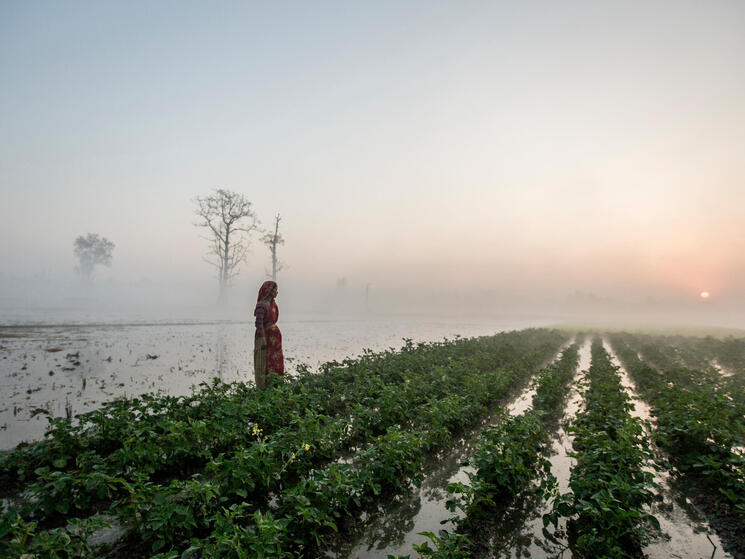
To Protect Earth’s Biodiversity, Transforming Our Food System Is Key
- Date: 08 December 2022
- Author: Melissa D. Ho, Senior Vice President, Freshwater and Food
Transforming our food systems is critical if the planet is to meet our ambitious and necessary goals for climate, nature, and people. How we produce and consume food will determine the future of humanity. Science clearly states that agricultural production contributes over a quarter of greenhouse gas emissions and is the major driver of biodiversity loss and the degradation of soil and water globally. We neglect these impacts at our own peril because food production for future generations depends on what we do now to ensure healthy ecosystems and a stable climate. While the dual crises of climate and biodiversity loss are inseparable, so too are the solutions and it is here where agriculture has a critical role to play.
We know what to do and we need leaders to take urgent action. We must advance an ambitious agenda for food systems transformation, which includes production, consumption, and reducing our waste at every stage in between. Agriculture is the only sector that has the potential to be part of the solution for climate and nature, but there is no silver bullet. We must take a holistic food systems approach and work together to end agriculture-commodity driven deforestation and conversion of natural habitats; shift to more regenerative and resilient production systems; promote healthier, agrobiodiverse, and sustainable diets; and drive more circular food systems that eliminate food loss and waste across global and local supply chains. We must also ensure a just and equitable transition by supporting producers on the frontlines of climate change’s impacts and who are the most vulnerable to its impacts, especially, Indigenous Peoples and local communities, smallholders, women, and youth. It’s imperative to strengthen their capacity for resilience, adaptation, and risk and ensure that resources flow directly to support their needs and constraints on the ground.
The exciting news is that we don’t have to develop any new technologies to harness the power of Nature. The solutions we need are already available. But we must uphold the truth that ecosystems and production systems are more valuable when they are conserved and sustainably managed than when they are destroyed. It is that simple.
Opportunities for urgent action on food systems cannot continue to pass us by. The United Nations COP27 just concluded, yet momentum stalled on the Koronivia Joint Work Group on Agriculture, which is essential to keeping food and agriculture included in the climate agenda of member states. As CBD COP15 begins in Montreal, we must elevate food systems transformation in the Global Biodiversity Framework. A successful framework would include a plan to halve the footprint of production and consumption by 2030, with targets for all sectors driving nature loss, especially around food and agriculture. That plan should have a strong and effective implementation mechanism, including a method to ratchet up action over time. Kicking the can down the road towards future global policy conferences threatens to close our window of opportunity to limit global warming to 1.5 degrees Celsius and the accelerating loss of biodiversity. We can feed the world with food that is healthy and nutritious and celebrates the culture and diversity of the planet, but we must do so in ways that still conserve and protect our planet. This is the only way that we can continue to feed and sustain future generations. There is no Planet B.